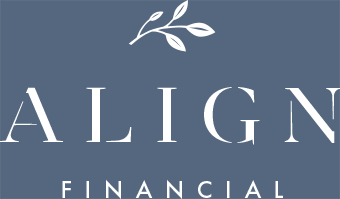In this article, I’m sharing the asset protection strategies I often consider for my clients so they can sleep better at night. While all of these strategies may not apply to your personal financial situation, you can use these suggestions as a starting point to make sure you, your family, and your wealth are protected when potential setbacks occur.
If you’re anything like me, you probably begin every new year with a renewed sense of optimism and motivation to achieve big goals. Yet by the time February rolls around, that initial drive subsides and old habits start to creep in again.
First of all, this dropoff in determination is completely normal. In fact, we are hardwired as humans to resist change. The amygdala part of our brains interprets change as a threat and releases the hormones for fear, fight, or flight; this is our body’s way of protecting us. However, we don’t always need protection from change, especially changes that improve our quality of life. That’s why resilience–our ability to recover quickly from such setbacks–is always on my mind this time of year.
Of course, becoming a more resilient person is one way to improve your outcomes (and, might I add, often necessary for long-term investors to endure the ups and downs of the market). But don’t worry, this isn’t an exercise in changing your mindset overnight. Instead, let’s focus on some of the more immediate ways you can build resilience into your financial plan.
(It’s important to note that these asset protection strategies are especially important as you accumulate more wealth–not just because you have more money to protect, but because affluent people tend to be more vulnerable to theft, extortion, and frivolous litigation, not to mention higher taxes.)
Consider Incorporating These Asset Protection Strategies Into Your Financial Plan
#1. Insurance
Having the right types of insurance may seem like one of the more obvious ways to protect yourself against catastrophic financial loss. Unfortunately, most people don’t take full advantage of insurance as an asset protection strategy. Life, liability, and umbrella insurance policies may have a place in your financial plan, depending on your circumstances.
Life Insurance
According to LIMRA, only 59% of Americans have life insurance. That may not sound like a big deal on the surface. However, about half of those who have life insurance are still underinsured, meaning there may not be enough money to provide for their families or pay off debts in the event of an early death.
There are different rules of thumb for determining how much life insurance you need. These rules of thumb can vary dramatically depending on the uniqueness of your situation. However, if you have a family, a business, or any other institution that depends on your ongoing financial support or repayment, it’s best to discuss your life insurance needs with a financial planner or insurance specialist sooner rather than later.
Excess Liability and Umbrella Insurance
Excess liability and umbrella insurance are two terms often used interchangeably in the insurance industry. Both types of coverage are meant to protect your assets over and above the amounts typically provided by basic liability and property insurance policies.
Umbrella insurance is especially important if you’re at risk of being sued for damages to other people’s property or injuries caused to others in an accident. It also protects against libel, vandalism, slander, and invasion of privacy–basically, any event that could potentially drain your personal assets without proper coverage.
If you’re considering excess liability or umbrella insurance, most experts recommend an amount that matches your net worth, plus your future income stream. But again, this amount may vary depending on your personal circumstances and objectives.
Long-Term Care Insurance
A question I consistently hear from clients is how they can prevent their savings from being drained as they age and potentially need in-home medical care or assisted living. Whether you can afford to pay for long-term care out of pocket or not, it can become very expensive very quickly depending on your needs. According to Genworth’s Cost of Care Survey, in the United States a private room in a nursing home currently costs $8,365 per month, on average, or $275 a day!
One way to defray this cost is to purchase long-term care insurance, which helps protect your assets from being depleted quickly if you need medical services that aren’t covered by traditional health insurance, including assistance with routine daily activities. Long-term care insurance is a complicated topic with a variety of factors to consider before determining whether it makes sense for you and your family. Keep an eye on our blog for a future post that discusses these issues in more detail.
Cybercrime and Identity Theft Insurance
As cyber attacks and identity fraud cases become more commonplace, the risk you’ll be the victim of one of these crimes (if you haven’t been one already) only increases. Some insurance providers offer cybercrime and identity theft insurance as an additional safeguard against what often turns out to be an expensive ordeal.
Although this type of insurance isn’t designed to reimburse victims for all stolen funds and financial loss, it will pay up to a specified dollar amount for actual losses related to the theft of your identity. It may also reimburse you for any large expenses you incur in order to restore your identity. In addition, many policies include identity restoration, which can help you avoid falling victim to cybercrimes and identity theft in the future.
#2. Strategic Asset Location and Titling
Whether your goal is to grow your assets, preserve wealth, or protect your estate, strategic asset location and titling (i.e., legal ownership) can help you avoid unnecessary tax consequences that chip away at your net worth over time. In addition, in some cases these strategies can protect you and your family against excess personal liability.
Tax-Deferred Investment Accounts
In 2021, the highest earners in the U.S. (income greater than $441,450 for individuals and $496,600 for married couples) are subject to a long-term capital gains tax rate of 20%, while those earning less pay 15% or no taxes at all, depending on their incomes. That additional 5% can have a significant impact on your wealth and investment returns over time.
Utilizing tax-advantaged accounts like individual retirement accounts (IRA), a 401(k), or health savings account can help you avoid or defer certain taxes to lessen your liability today and build more wealth over time. Just be aware that for 401(k) plans and traditional IRAs, you’ll have to pay taxes on future withdrawals, so you’ll want to consider your other income sources to determine a tax-efficient timeline for taking distributions.
Trusts
We previously put out a two-part series on trusts–what they are, who needs them, and whether they’re worth the cost. The bottom line is that trusts are not just an estate planning tool–they’re also viable asset protection strategies.
Trusts are often used because they allow you to put conditions around how and when your assets are distributed after (and in some cases before) your death. However, they also offer specific advantages over a traditional will, such as privacy, certain tax exemptions, and increased protection against lawsuits and creditors. Though they don’t replace the need for a will altogether, they’re worth considering if you hope to efficiently provide for future generations.
Family Limited Partnerships (FLPs) and Limited Liability Corporations (LLCs)
FLPs and family LLCs are separate entities often used by wealthy families to exclude certain assets from a taxable estate. They are also effective asset protection strategies in that they safeguard family assets against creditors (and potentially divorce).
Essentially, family members who form an FLP or family LLC no longer own the assets they contribute to the new entity. Instead, they hold units or membership interests in the entity. This not only limits member liability but generally allows the value of the contributed property to be discounted for gifting and estate planning purposes under IRS rules.
Family limited partnerships and limited liability corporation laws and treatment vary by state, so be sure to consult a financial planner, tax advisor, or estate planning attorney if you’re considering either of these options.
Asset Titling
Finally, most people don’t think about the impact asset titling can have on your estate plan and the asset protection strategies you’ve put in place. However, according to JPMorgan, even the best estate plans can be undone if assets are titled incorrectly. In addition, proper titling can protect your assets from predators and creditors. For maximum protection, be sure to title your assets in a way that’s consistent with your overall financial and estate plans.
#3. Homesteading
A homestead exemption is a legal provision that can help protect your house and property in times of economic hardship or the death of a homeowner spouse. In many cases, these exemptions provide asset protection from creditors for at least some of the value in the homestead, prevent the forced sale of your home to meet demands of creditors, and allow for a reduction of or exemption from property taxes.
Since each state sets its own requirements for homestead protection, it’s important to do your research and work with an attorney if possible to determine whether this is an asset protection strategy you can utilize.
A Good Financial Plan Protects You from the Unexpected
One of the benefits of working with a financial planner is that oftentimes we can see more clearly where your risks and blindspots are and prepare you accordingly. The fact is, unexpected setbacks can hit any of us at any time. Asset protection strategies simply put the right safeguards in place so you’re not caught off guard when they do.
If you’d like to speak with a CERTIFIED FINANCIAL PLANNER™ about protecting and growing your assets, please give us a call. We’d be happy to talk through these strategies with you and give you a path forward.













